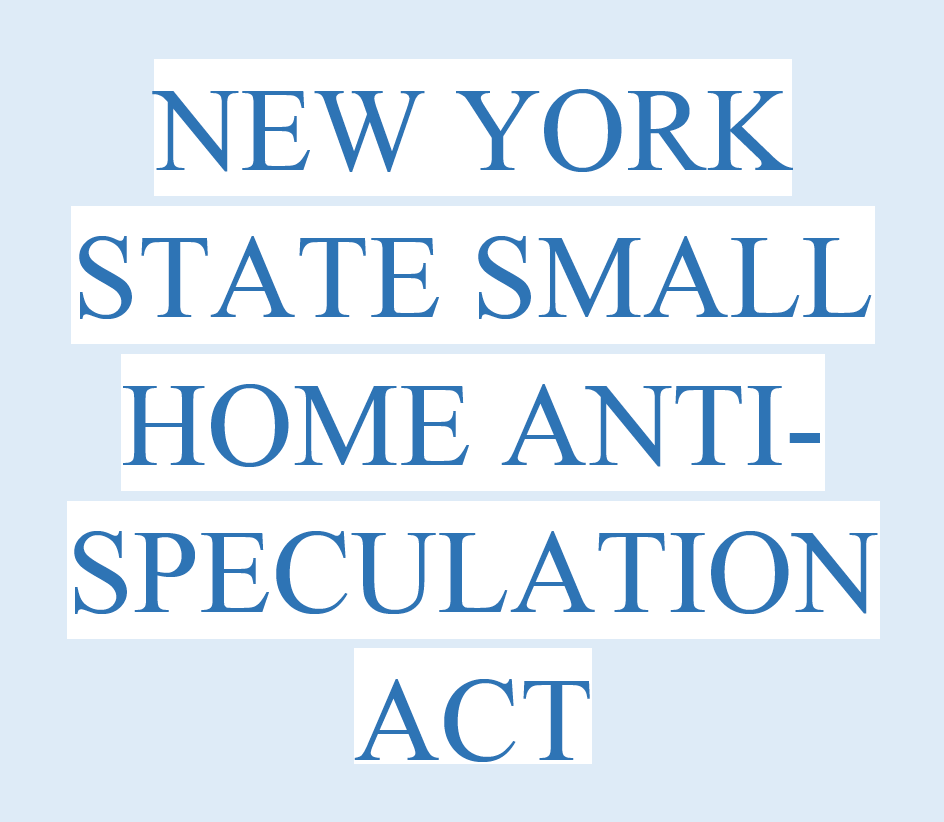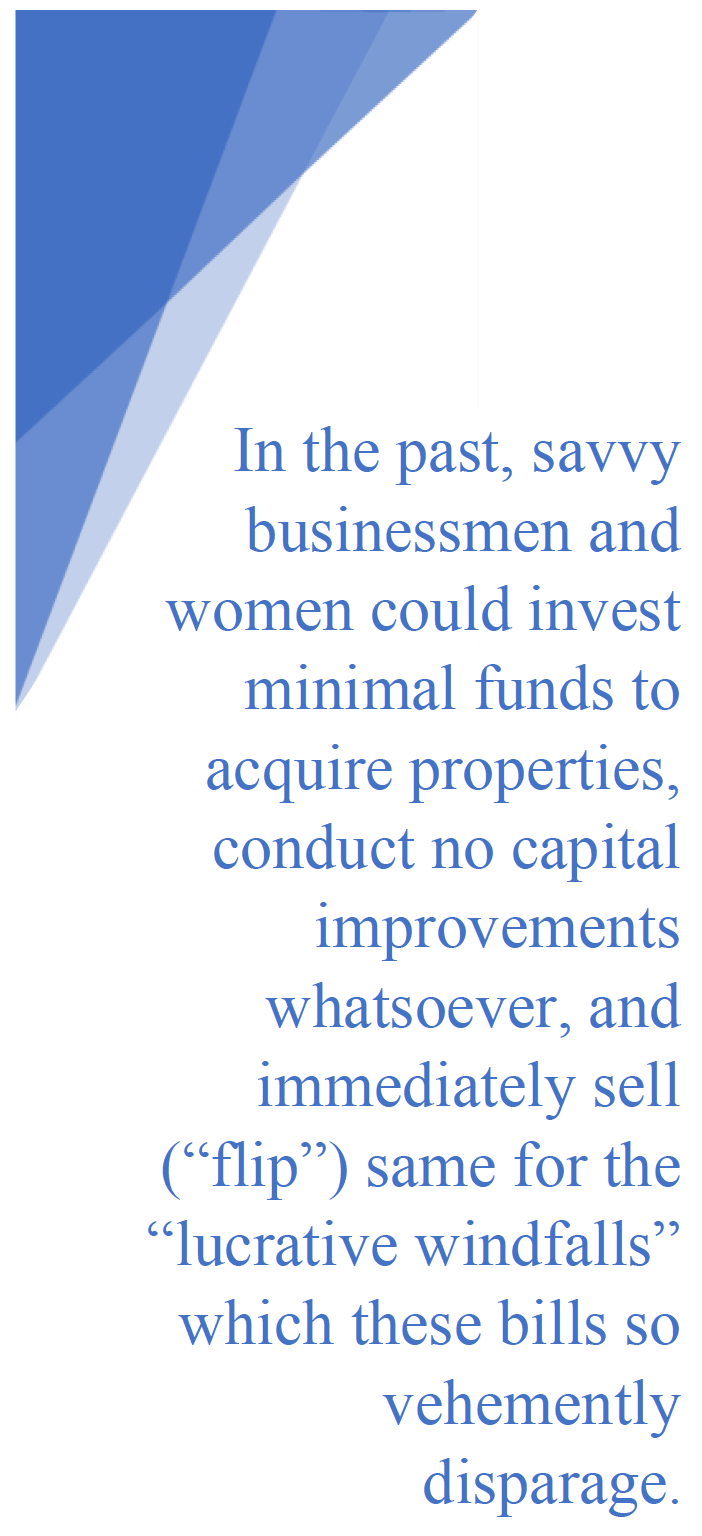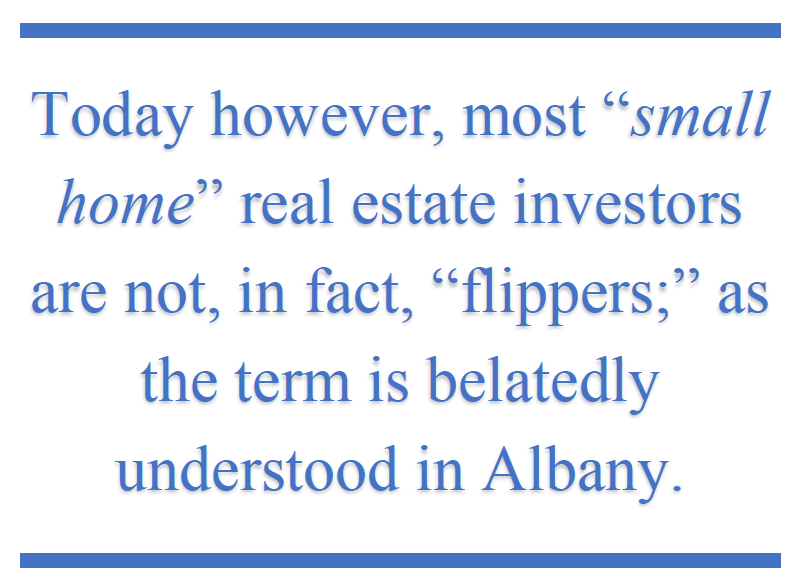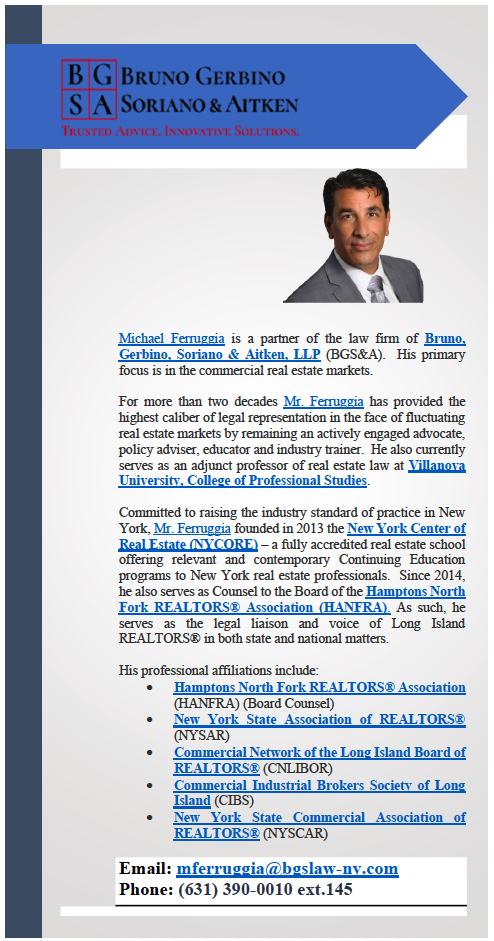
You did not misread. The most current draft of NY Senate Bill S3060E and its companion Assembly Bill A5375A, both entitled the “NEW YORK STATE SMALL HOME ANTI SPECULATION ACT” will, if passed, impose an additional
transfer tax on all 1-5 family properties located within the City
of New York that are sold within two years. Specifically, if sold
within the first two years of acquisition, subject transfers shall
incur a speculation tax equal to 15% of the total consideration.
If sold within the first one year of acquisition however, this
additional tax will increase to a staggering 20%!
This new investor tax is in addition to any New York State
or New York City transfer taxes which already apply to such
transactions. Moreover, the tax, as proposed, does not account
for net profit or potential lack thereof. There is, however, an exception carved out to exempt transactions when the subsequent transfer is for a purchase price less than or equal to that of the former. But for qualifying transfers, this new tax is based on the gross amount of consideration (normally purchase price), irrespective of any profit
realized.
There are, however, exceptions provided for inter-family transfers, estate transfers, new construction, deeds in lieu of foreclosure, foreclosure auctions, and transfers involving demonstrable hardship.
So, what are the public policy justifications for this proposed legislation? The cited legislative intent is to “discourage short-term real estate speculation, known as ‘flipping.” Yet, both bills fail to define the term. Still, they conclude that “flipping… significantly decreases the availability of affordable housing in New York City and causes hardship to many families, while offering lucrative windfalls to property owners.”


The bills therefore propose that profitable investing by “property owners” should be statutorily discouraged.
It should also be noted that the term “flipping,” as it is used in most industry circles, refers to a practice which has not been commonplace for over a decade. It is, in fact, rarely used today. In the past, savvy businessmen and women could invest minimal funds to acquire properties, conduct no capital improvements whatsoever, and immediately sell (“flip”) same for the “lucrative windfalls” which these bills so vehemently disparage. This practice also certainly contributed to the housing bubble burst of 2007.
Today however, most “small home” real estate investors are not, in fact, “flippers;” as the term is belatedly understood in Albany. Instead, the majority represent small-business owners who do, in fact, invest their own (significant) funds to acquire and rehabilitate distressed properties. Yes, they plan to realize measured gains. But rehabilitation investing prevents distressed and foreclosed properties from devolving into rundown board-ups. Instead, the subject properties are soon showcased as desirable single and multi-family dwellings and the values of comparable properties increase as communities become gentrified.
True, real estate “wholesaling” may exist today as a popular investment vehicle. But the end-result here is that significantly improved and renovated properties are taken to market; unlike the “flipping” schemes of the early 2,000’s.
Proponents of these bills cite long-term investment by families, not short-term speculating by investors, as paramount and aim to preserve low-to-moderate income housing opportunities. The inevitable gentrification of rehabilitated neighborhoods, they argue, serves to place home ownership further out of reach for these families as property values increase at a faster rate than incomes.

Critics, however, fear that an anti-speculation tax will be devastating to already struggling neighborhoods as well as the real estate marketplace as a whole.
Developers and investors are, by now, keenly aware of the financial impact of the Housing Stability and Tenant Protection Act of 2019. This sweeping legislative assault on private property rights and expansion of tenant privileges has driven many investors to look elsewhere for passive income real estate investment opportunities (“buy and holds”). An anti-speculation tax, they argue, will be equally deleterious to rehabilitation investing (“fix and flips”).
In light of the inarguable corporate flight from the State of New York (Amazon to name but one) and the resulting devaluation of multi-family properties since the enactment of the Housing Stability and Tenant Protection Act of 2019, many real estate industry organizations, including the New York State Association of REALTORS®, have committed to dedicating significant funds and resources to actively opposing these new anti-speculation bills. Against the current political landscape in Albany, however, these efforts are quite likely to prove futile.


